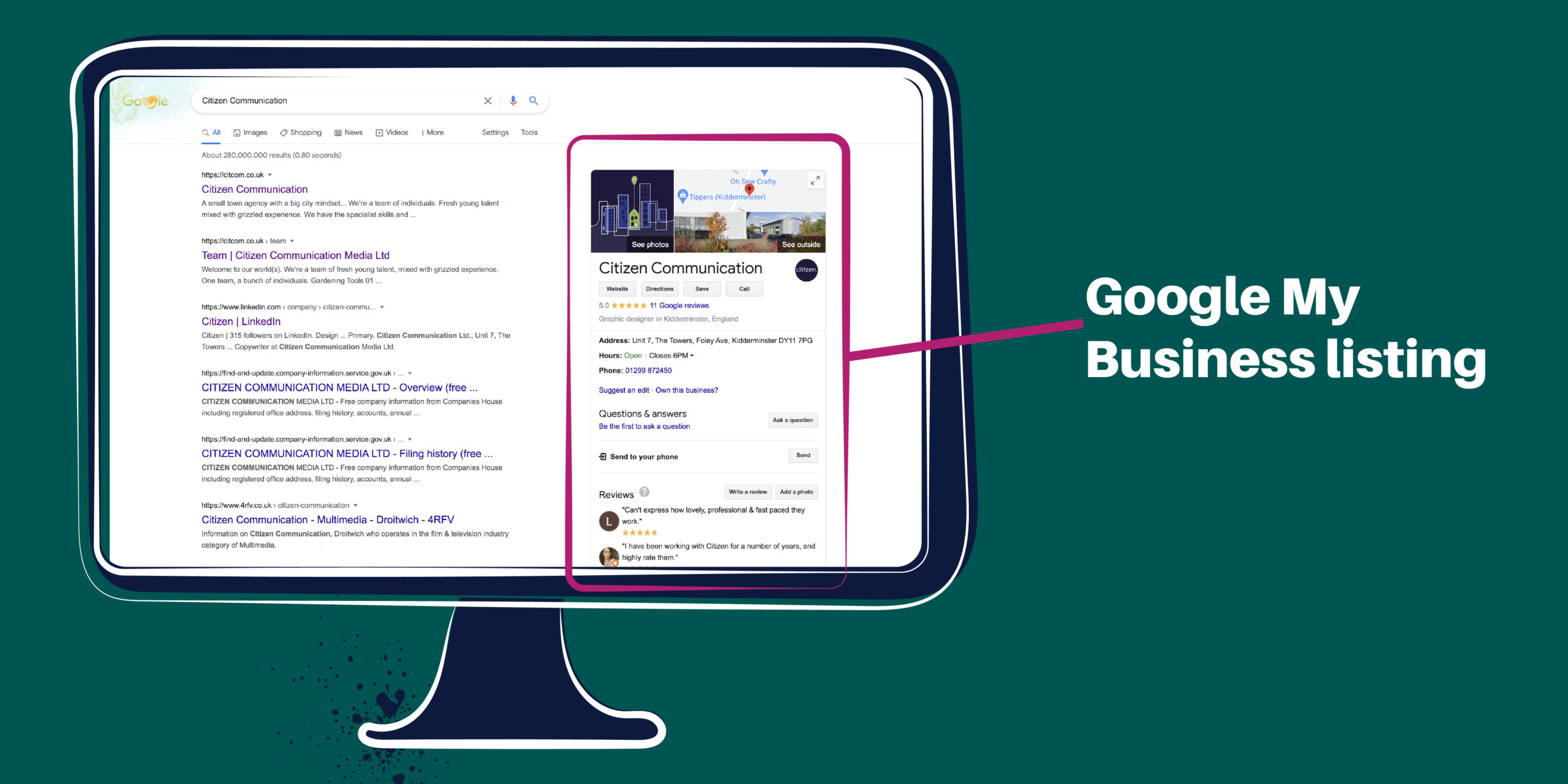SEO tips for new small business websites
Published 21st Jun 2021 | By Citizen Editor
Est. reading time: 4 mins read
Since March 2020 life as we know it has fundamentally changed. The COVID-19 pandemic has meant lots of changes to how we look for, and purchase products and services, largely due to the fact that only essential shops and services have been open to visit in person.
This has meant that increasing numbers of businesses have had to reinvent themselves or change the way they interact with customers.
In a lot of cases this means moving online for the first time, or increasing existing online activity. Many smaller businesses have been hit particularly hard during the pandemic so marketing budgets are likely to be reduced. So, how do you make the most of a limited marketing budget and get your business found online?
Once you have your website you need people to start visiting it and buying your products or learning more about your services. This can be paid for by using online advertising such as Google Ads or paid social media channels. Or it can be done by utilising search engine optimisation (SEO).
What is SEO?
SEO is the practice of increasing the quantity and quality of traffic to your website through organic search engine results.
Professional SEO services can be expensive, especially if you are in a highly competitive marketplace where there will be many companies all trying to attract customers who are using the same search terms online.
There will be many people all trying to achieve that number one position in the search engine rankings. SEO is not a quick fix, with the many factors that the search engines use to rank online content, it can take a while for any reward for your SEO efforts to be seen.
However, if you are just starting out online there are some SEO tips that will help you get your website found on the search engines.
SEO basics for new websites
Submit your site to Google
Whilst Google is constantly crawling the web looking for content and websites so eventually it will probably find your new website. However, if you want to make sure that it is found you can submit your site to Google using Google’s Search Console tool.
Create a Google My Business page
A Google my business profile will allow you to submit details about your business to Google such as opening hours, services and products and even add its physical location. Business Profiles appear in Google Maps and in the local results of Google Search.

You can collect reviews which are a good trust signal for potential new customers and also provide a way to engage with customers as you are able to respond to any reviews that have been submitted. It will also provide another way to add a link to your website.
Link building
Link building is the process of getting other websites linking to your site. Backlinks (as they are known) are especially valuable ranking factors for search engines, because they represent a “vote of confidence” from one site to another.
If many sites link to the same webpage or website, search engines will determine that the content is worth linking to, and therefore also worth placement on a search engine results page (SERP). Link building for any website should be an ongoing process, but there are a few ways to give your new site a head start.
- Create social media profiles and add your web address to the bio
- Write content about your particular subject area for online press releases and other relevant sites
- Add your company’s details to online directories for your local area and industry
Title tags and meta descriptions
Something else that can get overlooked when building a new site are page titles and meta descriptions. They are one of many factors that search engines use to determine the subject matter of a webpage. They are also a way to entice a user to click on your website from a SERP.

A title tag should be under 60 characters in length and be short and descriptive. A good title can be the difference in someone clicking on your link or your competitors. The title will also be displayed in the tab at the top of the web browser and they are also displayed on social media platforms when the page is shared.
A meta description should be no more than 160 characters long and it is an opportunity to advertise your website to searchers. Creating an easy to read, compelling description that includes the relevant search terms can improve the number of clicks a webpage receives.
Most of the off-the-shelf content management systems used for managing websites will have free SEO plugins available where you can add or amend titles and meta descriptions.
Free website MOT
Try our free website auditing tool below to see how your website shapes up. Just enter your website URL to receive a free technical SEO audit.
You’re welcome.
Related Posts

3 mins read
The Importance of Mental Health in the Workplace
World Mental Health Day is celebrated on October 10th every year to raise awareness of mental health issues and encourage people to seek help if they need it. It is...

3 mins read
Why Your Worcestershire Business Needs a Local Digital Marketing Agency
Welcome to the Wild World of Worcestershire Business! ???? So, you’ve got a business in beautiful Worcestershire, the heart of England. Maybe you’re nestled in Worcester’s historic streets or taking...

2 mins read
Instagram Broadcast Channels: A Game-Changer for Brands and Creators
The anticipation is over! Instagram’s Broadcast Channels have officially made their debut in the UK following their successful launch in the US earlier this year. But what’s all the fuss...
Connect with us …





